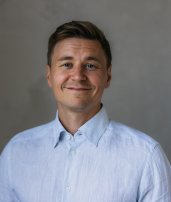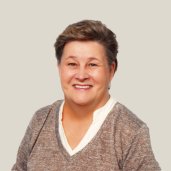
Other sleep disorders
Specialists in the article


Revised 9/27/2024
Other sleep disorders in brief
- Other sleep disorders refer to various sleep disorders, such as restless legs, narcolepsy and parasomnias.
- The treatment varies depending on the cause of the disorder and may include lifestyle changes, guidance from a specialist and, in some cases, medication.
- The diagnostics and treatment of sleep disorders often require knowledge of several specialities.
Related services
CPAP therapy
Positive airway pressure ventilation effectively reduces sleep apnoea symptoms and improves the quality of life.
Sleep and sleep disorders
Sleep disorders can be caused by both physical and psychological factors. It's a good idea to seek help if you have a sleep disorder.
Sleep apnea examination, night polygraphy
A reliable at-home examination to diagnose and assess the severity of sleep apnoea.
Sleep apnoea oral appliance
A treatment especially for mild sleep apnoea.
Read more about different sleep disorders
Hypersomnia refers to excessive sleepiness, i.e. abnormal daytime tiredness with a compulsive need to fall asleep. Abnormal daytime sleepiness can be caused, for example, by a lack of sleep, certain medications, substance abuse, psychiatric causes and certain illnesses.
Treatment of hypersomnia
The treatment of excessive sleepiness is based on treating the underlying cause of the symptom. As self-care, you should make sure that you have a regular circadian rhythm and get enough sleep as well as check that your ways of life are regular.
Parasomnias, or special sleep disorders, refer to unwanted physical events, such as motion disturbances or abnormal behaviour, or experiences, such as emotions and dreams, that occur when falling asleep, during sleep or when awakening from sleep. Parasomnias are classified as parasomnias related or unrelated to NREM or REM sleep. Talking in sleep is considered to be a normal activity during sleep, which occurs with most people at some point in their life.
Parasomnias include, for example, confusional arousals, sleep walking, teeth grinding or bruxism, sleep terror attacks, nocturnal sex parasomnia or nocturnal eating disorder, recurrent sleep paralysis episodes, nocturnal hallucinations, nightmares, bed-wetting and catathrenia (exhalation-related, intense and prolonged sound production). Parasomnia symptoms usually last from a few seconds to about half an hour at a time. Parasomnia is characterised by unresponsiveness to external stimuli, fear, confusion and some degree of memory loss.
Treatment of parasomnias
When mild and occurring rarely, these phenomena are normal and do not require treatment. If parasomnia occurs frequently, the symptoms are severe or cause other significant harm, treatment is necessary. The treatment of parasomnia focuses in particular on the regular sleep rhythm and the avoidance and treatment of factors that increase sleep disruption and stress factors. Learning-theory and behavioural therapies can also help to manage anxiety that predisposes to parasominias and the anxiety caused by them.
Parasomnias include teeth grinding during sleep, i.e. sleep bruxism, which is usually treated by dentists who have specialised themselves in the topic.
A regular circadian rhythm promotes both a good night’s sleep and a suitable level of alertness during the day. The circadian rhythm is regulated by the central circadian clock in your brain. Your body follows approximately 24-hour cycles. The rhythm is synchronised by the variation of light and darkness. Other synchronising factors include regular meal times as well as regular bedtimes and wake-up times. The need for sleep varies between ages, and different life situations affect which factors may interfere with your circadian rhythm. Children and adolescents need more sleep, and as they get older, the need for sleep decreases.
The circadian rhythm may be disturbed. The disturbances include, among other things, delayed or early sleep, seasonal insomnia, irregular sleep rhythm, circadian rhythm disorder, shift work sleep disorder and jet lag. Circadian rhythm disorders typically manifest as insomnia, excessive sleepiness and/or fatigue.
Examining circadian rhythm disorders
In the examination of circadian rhythm disorders, the patient is usually interviewed and examined, a sleep-wake diary and other sets of questions are used and movement activity can be recorded (actigraphy).
Treatment of circadian rhythm disorders
The treatment varies depending on the disorder and its cause. Treatments include bright light and/or natural light therapy, melatonin, pacing of work and everyday activities and cognitive behavioral therapy for insomnia (CBT-I). For self-treatment, we recommend sleeping long enough at night, avoiding evening meals (particularly high-fat foods) and alcohol, regular exercise (heavier exercise should be scheduled during the day) and utilising daylight in the morning or a daylight lamp during the dark season.
Sleep studies and treatment of sleep disorders at Mehiläinen
Mehiläinen has extensive expertise in sleep disorders. In case of a common cause of sleep disturbance, your doctor or general practitioner can make the diagnosis and start treatment. If there is a suspected organ cause for the disorder, Mehiläinen’s laboratory can take the necessary laboratory tests and carry out possible sleep studies.
If treatment procedures are needed, Mehiläinen’s doctors and dentists are there to help you, and they can, for example, customise a sleep apnoea mouth device for you. The treatment of difficult sleep disorders may require the expertise of specialists in several different fields. If necessary, Mehiläinen can combine the expertise of, for example, a neurologist, psychiatrist, pulmonologist, ear specialist and clinical neurophysiologist to examine the sleep disorder and treat the patient.
Prices are starting prices and depend on the selected studies and treatment methods. An outpatient clinic fee and Kanta fee are added to consultation visits.
| Service | Price estimate |
|---|---|
| Start of CPAP machine therapy (1st appointment with a sleep apnoea nurse) *The customer purchases a CPAP machine for themselves, starting from EUR 223.90. | from 223,90 € No Kela reimbursement |
| Initial examination for snoring | from 66,80 € Without Kela reimbursement from 96,80 € |
| Concise sleep polygraphy No Kela reimbursement will be paid for a concise sleep polygraphy. Learn more and book an appointment for a concise sleep polygraphy | from 542,40 € No Kela reimbursement |
| First appointment for a sleep apnoea oral appliance The estimated total price of a sleep apnoea oral appliance starts from about EUR 1,200. Learn more and book a first appointment for a sleep apnoea oral appliance | from 96,80 € Without Kela reimbursement from 123,80 € |
| Initial evaluation for sleep apnoea | from 66,80 € Without Kela reimbursement from 96,80 € |
| Initial examination of sleep disorders | from 66,80 € Without Kela reimbursement from 96,80 € |
Related symptoms
Frequently asked questions about other sleep disorders
A circadian rhythm disorder is a state in which the human internal clock is at a different pace with the light-dark cycle and social demands of the surrounding environment. This can lead to a situation in which you have difficulties in falling asleep and waking up at normal times, which can interfere with your normal daily activities.
Treatment of circadian rhythm disorders may include, for example:
- Phototherapy. Exposure to bright light at a certain time of the day can help to regulate the body’s internal rhythm.
- Melatonin. At the doctor’s recommendation, you can try the melatonin hormone, which regulates sleep and awakeness.
- Medication. In some situations, medication may help.
- Behavioural changes. Going to bed and waking up regularly, avoiding stimulants (such as caffeine and nicotine) in the evening, using relaxation techniques and good sleep hygiene can help you to fall asleep.
- Lifestyle changes. Regular exercise and a healthy diet can help to improve sleep and adjust sleep rhythms.
It is important to consult your doctor before starting any treatment to ensure that the treatment is safe and appropriate for your individual needs.
Parasomnia is a group of sleep disorders that include unusual physical or emotional phenomena, such as sleep walking, nightmares, night terror attacks and other similar symptoms. Parasomnias can occur at any stage of sleep and can interfere with the quality of sleep.
The treatment of parasomnia depends on the type of disorder and its severity. Mild and rare parasomnias are normal and do not require treatment. If the disturbances recur frequently, are severe or cause other significant harm, treatment is necessary.
Treatment may include:
- Ensuring a good sleep hygiene. A regular bedtime schedule, relaxation techniques and optimising the bedroom environment can help.
- Medication. In some cases, medication may be tested. On the other hand, certain medicines may provoke parasomnia, in which case it may be appropriate to pause the medicine.
- Cognitive-behavioural therapy can help to address the psychological factors behind the sleep disorders.
- Implementation of necessary safety measures. For example, when walking while sleeping, it is important to ensure that the environment is safe.
- Treatment of other diseases or conditions that may cause underlying symptoms.
It is important to discuss the appropriate treatment plan with your doctor, as the treatment of parasomnia is individual and depends on many factors.
Hypersomnia is an excessive sleep disorder that manifests itself as excessive daytime fatigue or unusually long nighttime sleep. Hypersomnia can be a primary or independent disorder, such as idiopathic hypersomnia, or it can be secondary, i.e. related to other diseases, such as infections or medications used.
Treatment of hypersomnia depends on the underlying cause. In the case of a central nervous system hypersomnia disorder, such as narcolepsy or idiopathic hypersomnia, medicinal treatment can be used to improve alertness. Certain medications can help to reduce daytime sleepiness and improve awakeness.
It is important to discuss with your doctor to prepare the right treatment plan, as the treatment of hypersomnia is individual and depends on many factors.


